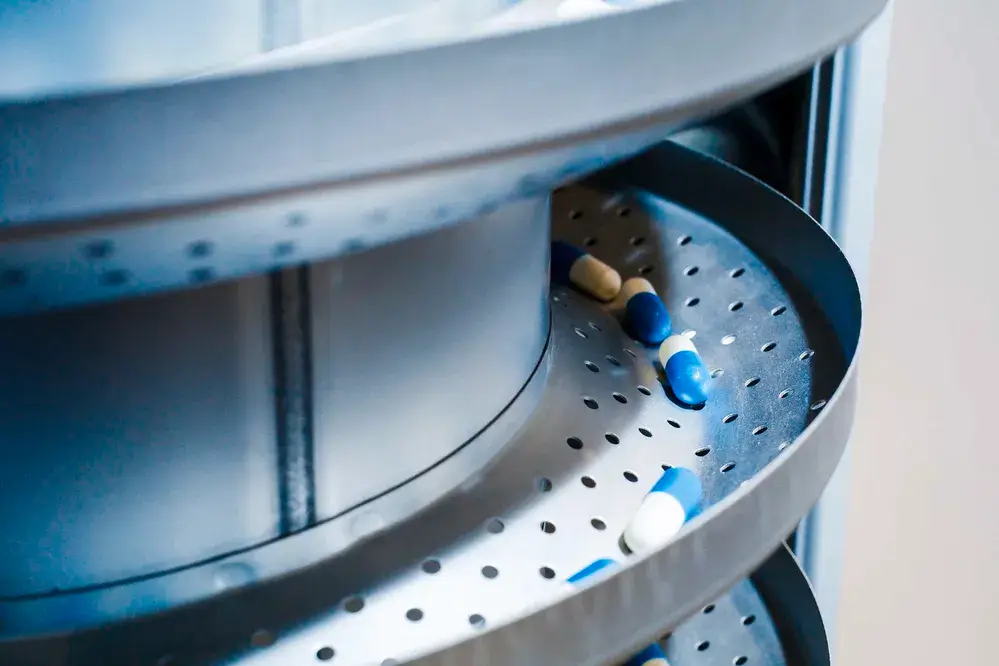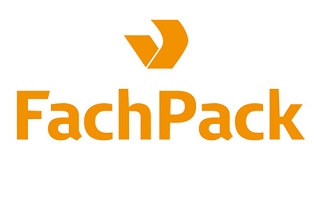
Patient safety is the top priority in the manufacture and packaging of healthcare products such as medications and medical products. Hygiene is therefore the be-all and end-all, from the production and packaging process through to the patient. After all, manufacturers regularly process and produce very valuable and highly effective products for which it is vitally important to avoid impurities, leaks and cross-contamination.
In other words, anyone manufacturing tablets and capsules needs to make sure the discharge process is as dust-free as possible, and metering must be particularly accurate. Pharmaceutical production therefore makes use of automatic bulk goods handling processes with pneumatic conveying and containment systems supplemented with exhaust units. The overall design of the plant can be highly customized, depending on whether blockbuster products are being processed, or specialities with small batch sizes.
A question of requirements
This is a highly regulated sector, which must satisfy stringent national and international regulations, such as those of Good Manufacturing Practice (GMP) and the Food and Drug Administration (FDA). These ensure the necessary care and quality during drug manufacturing, packaging and storage. They also define how to handle the various product classes – for example, which substances, equipment and premises are permitted, and which documents, checks and hygiene strategies are necessary.
The provisions of the law and in-house requirements go hand in hand in this regard. In drug production, human safety plays a major part in particular: Processes and plant must be designed to ensure that any dust that is released does not impact on the plant operators. That applies to the manufacturing process as well as the procedures to clean and convert the production facilities, which are essential elements when manufacturing many different types of pharmaceutical.
Sustainability brings it full circle
Once pharmaceutical products are in their packaging, the packaging ensures the necessary protection against environmental influences and damage from being hit, dropped or compressed. But something that has been packed will eventually need to be unpacked again. Mechanical engineering supports sustainability and the circular economy for recyclable materials by making appropriate methods available for sorting, shredding, separating, drying, conveying and compacting.
Pharmaceutical manufacturer Sanofi has adopted an approach that includes the patient in the process. Working with TerraCycle, a returns system was developed in the UK to enable patients to take empty blister packs back to participating pharmacies. TerraCycle then uses a special recycling process to recover recyclable raw materials from the blister packs.
Process, technology and packaging in combination
The pharmaceutical market, reflected simultaneously this year by FACHPACK and POWTECH, offers a broad range of solutions for visitors from the pharmaceutical industry. Many POWTECH exhibitors have perfected the necessary processes specifically for pharmaceutical applications.
“The fact both of these events are taking place at the same time this year is a stroke of luck for the pharmaceutical sector,” comments Dr Martin Bornhöft of the International Association for Pharmaceutical Technology (APV), a member of the advisory board of POWTECH. “Trade fair visitors can now view the entire value chain from process through to technology and packaging.”
The products and services at POWTECH range from a European Hygienic Engineering and Design Group (EHEDG)-compliant rotary feeder to complete systems with comprehensive documentation guaranteed using a central automation system, thus offering an unprecedented view beyond the traditional confines of packaging and processing.


